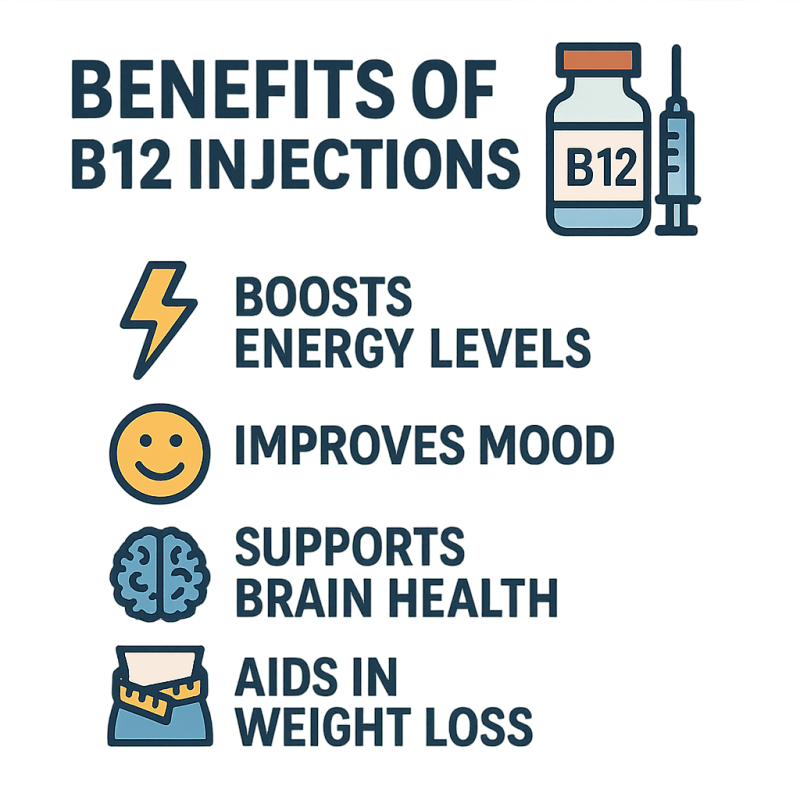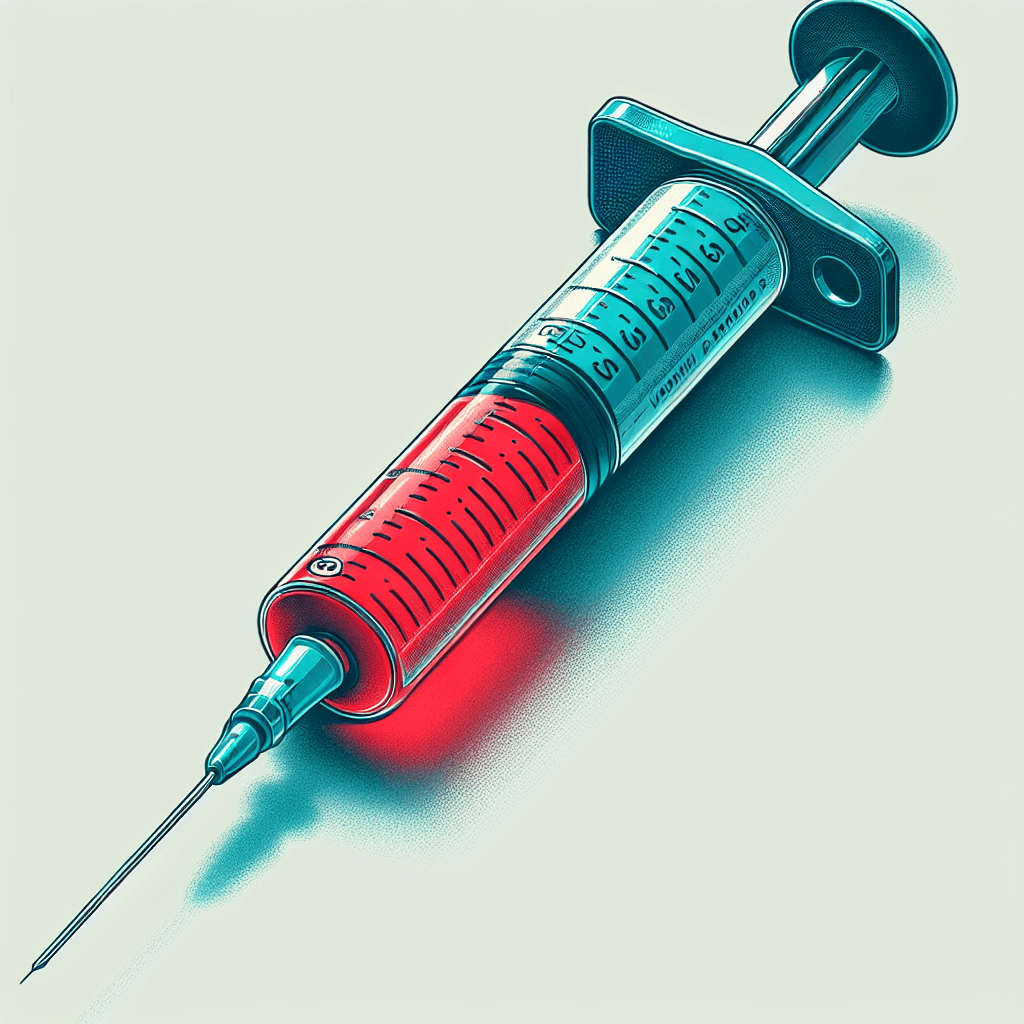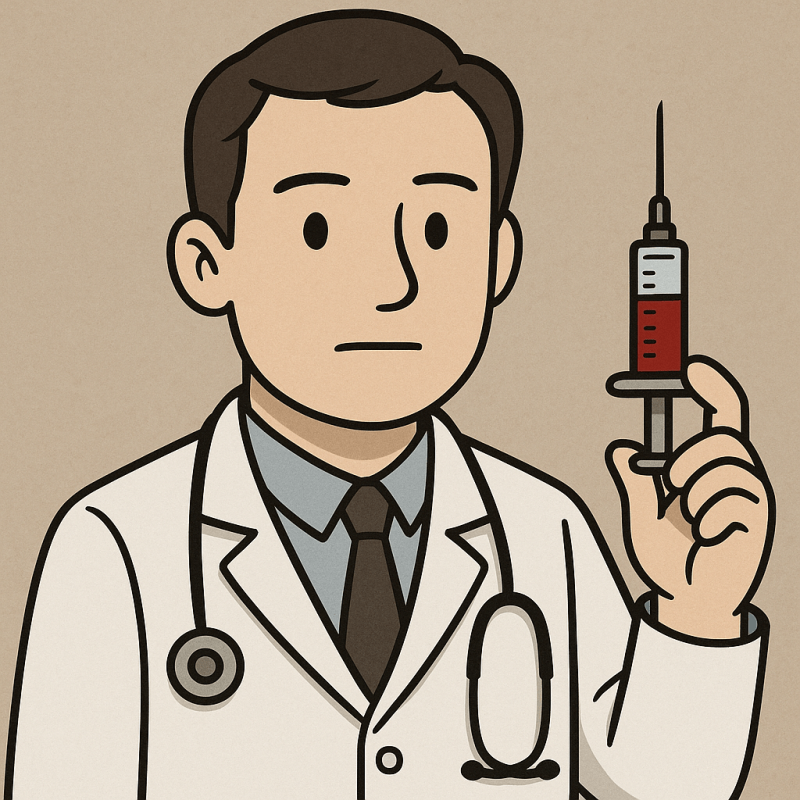Are B12 Shots Right for You? A Beginner's Guide

Vitamin B12 shots are injections designed to deliver a concentrated dose of vitamin B12 directly into the bloodstream, bypassing the digestive system for faster and more efficient absorption. This essential vitamin plays a critical role in red blood cell formation, neurological function, and DNA synthesis. For individuals with a vitamin B12 deficiency or those who struggle to absorb the vitamin through diet or supplements, B12 injections can provide a reliable and effective solution.
In recent years, the popularity of B12 shots has surged within health and wellness communities. Many people seek these injections not only to address deficiencies but also to boost energy levels, improve mental clarity, and support overall well being. The convenience and rapid effects of vitamin B12 injection therapy have made it a favored option among those looking for a natural way to enhance their health.
Understanding whether a B12 shot is the right choice depends on several factors, including individual health status, lifestyle, and specific nutritional needs. This guide aims to provide clear, evidence based information to help you evaluate the benefits and considerations of B12 injections. For more detailed information on the treatment and its uses, you can visit our dedicated b12 shot page.

Understanding Vitamin B12 and Its Importance
Role of Vitamin B12 in the Body
Vitamin B12, also known as cobalamin, is a water soluble vitamin that plays a vital role in maintaining overall health. One of its primary functions is supporting energy production by aiding in the conversion of food into usable energy. This process is essential for sustaining physical stamina and mental alertness. Additionally, vitamin B12 is crucial for the proper functioning of the nervous system. It helps maintain the health of nerve cells and supports the production of myelin, the protective sheath that surrounds nerves and ensures efficient signal transmission.
Beyond energy and nervous system support, vitamin B12 is indispensable for red blood cell formation. Without adequate B12, the body cannot produce healthy red blood cells, which can lead to anemia and reduced oxygen delivery to tissues. It also plays a role in DNA synthesis, which is fundamental for cell division and repair.
Vitamin B12 is naturally found in animal based foods such as meat, fish, dairy products, and eggs. However, absorption of vitamin B12 from these dietary sources can be challenging for some individuals. The vitamin requires intrinsic factor, a protein produced in the stomach, to be absorbed effectively in the small intestine. Conditions that affect stomach acid production or intrinsic factor availability, such as pernicious anemia or gastrointestinal disorders, can impair absorption. This is why some people may need a vitamin B12 injection or supplement to maintain adequate levels.
Symptoms and Risks Associated with B12 Deficiency
Vitamin B12 deficiency can manifest through a variety of symptoms, many of which impact daily functioning and quality of life. Fatigue and weakness are among the most common signs, often resulting from the body’s reduced ability to produce healthy red blood cells. Neurological symptoms may also appear, including numbness or tingling in the hands and feet, difficulty walking, memory problems, and mood changes such as depression or irritability. If left untreated, severe deficiency can lead to irreversible nerve damage and cognitive decline.
Certain populations are at higher risk for developing vitamin B12 deficiency. Older adults frequently experience decreased stomach acid production, which impairs B12 absorption. Vegetarians and vegans are also vulnerable since plant based diets typically lack sufficient natural sources of vitamin B12. Additionally, individuals with gastrointestinal conditions like Crohn’s disease, celiac disease, or those who have undergone gastric surgery may struggle to absorb the vitamin adequately. Identifying these risk factors early is critical to preventing long term health complications.
Diagnostic Methods for Detecting B12 Deficiency
Detecting vitamin B12 deficiency typically involves blood tests that measure serum B12 levels. These tests provide a snapshot of the amount of vitamin B12 circulating in the bloodstream. However, because serum B12 levels alone may not always reflect functional deficiency, additional tests such as methylmalonic acid (MMA) and homocysteine levels are sometimes ordered. Elevated MMA and homocysteine can indicate a cellular level deficiency even when serum B12 appears normal.
Healthcare providers may also evaluate complete blood counts (CBC) to check for anemia or abnormal red blood cell morphology, which can be indicative of B12 deficiency. If symptoms suggest neurological involvement, further neurological assessments may be necessary.
Anyone experiencing symptoms consistent with B12 deficiency or belonging to a high risk group should consult a healthcare professional for appropriate testing. Early diagnosis allows for timely intervention, often through vitamin B12 injection therapy or supplementation, to restore healthy levels and prevent complications.

Benefits and Effectiveness of B12 Shots
How B12 Injections Differ from Oral Supplements
Vitamin B12 injection therapy offers a distinct advantage over oral vitamin B12 supplements, primarily due to differences in absorption and bioavailability. When taken orally, vitamin B12 must pass through the digestive system, where it relies on intrinsic factor and adequate stomach acid to be absorbed effectively in the small intestine. For many individuals, especially those with gastrointestinal conditions or age related declines in stomach acid production, this process can be inefficient, leading to suboptimal absorption and persistent deficiency despite supplementation.
In contrast, a vitamin B12 injection delivers the nutrient directly into the bloodstream, bypassing the digestive tract entirely. This method ensures nearly 100% bioavailability, making it a highly effective option for those who have difficulty absorbing B12 through diet or oral supplements. The rapid absorption from a vitamin B12 injection also means that individuals can experience quicker improvements in symptoms related to deficiency.
For people with pernicious anemia, gastrointestinal disorders, or those who have undergone gastric surgery, vitamin B12 injections are often the preferred treatment. They provide a reliable way to maintain adequate B12 levels without depending on the body's compromised absorption mechanisms. This difference in delivery and effectiveness is a key reason why many healthcare providers recommend vitamin B12 injection therapy over oral supplements in specific cases.
Potential Benefits of Regular B12 Shots
Regular B12 shots offer a range of benefits that extend beyond simply correcting a deficiency. One of the most commonly reported advantages is improved energy levels. Because vitamin B12 plays a critical role in converting food into energy, individuals receiving B12 shots often notice a reduction in fatigue and an increase in overall vitality. This makes the B12 shot for energy a popular choice among those seeking a natural boost without relying on stimulants like caffeine.
In addition to physical energy, vitamin B12 injections can support cognitive function. Adequate B12 levels are essential for maintaining healthy brain function, and deficiency has been linked to memory problems, difficulty concentrating, and mood disturbances. Many recipients of B12 injection therapy report enhanced mental clarity and improved mood stability, contributing to a better quality of life.
Beyond energy and cognition, vitamin B12 shots can support overall wellness by promoting healthy red blood cell production and nervous system function. For individuals with B12 injection for anemia, these shots can be a critical component of treatment, helping to restore normal blood counts and reduce symptoms like weakness and shortness of breath. The cumulative benefits of regular B12 shots make them a valuable tool in managing both deficiency and general health maintenance.
Scientific Research and Expert Opinions
Clinical studies have consistently demonstrated the effectiveness of vitamin B12 injection therapy in treating deficiency and related conditions. Research shows that B12 shots rapidly increase serum B12 levels, often leading to significant symptom improvement within days to weeks. Studies focusing on populations with absorption issues, such as older adults and individuals with pernicious anemia, highlight the superiority of injections over oral supplements in restoring adequate vitamin levels.
Medical experts generally agree that vitamin B12 injections are a safe and effective treatment when administered appropriately. While routine use in individuals without deficiency remains a topic of debate, healthcare providers widely endorse B12 shots for those diagnosed with deficiency or at high risk. The low incidence of side effects and the ability to tailor B12 injection dosage and frequency to individual needs further support their use in clinical practice.
Overall, the scientific community recognizes vitamin B12 injection therapy as a valuable option for B12 deficiency treatment. Patients considering this approach should consult with healthcare professionals to determine the appropriate dosage, frequency, and monitoring to maximize benefits while minimizing any potential risks.

Considerations Before Getting B12 Shots
Identifying if B12 Shots Are Suitable for Your Specific Health Situation
Determining whether vitamin B12 injection therapy is appropriate depends largely on individual health conditions and lifestyle factors. Certain medical conditions, such as pernicious anemia, gastrointestinal disorders like Crohn’s disease or celiac disease, and a history of gastric surgery, often necessitate B12 shots due to impaired absorption of the vitamin through the digestive tract. Additionally, individuals diagnosed with B12 injection for anemia may require regular injections to restore and maintain healthy red blood cell levels.
Lifestyle and dietary habits also play a significant role in deciding if B12 shots are the right choice. Vegans and vegetarians, who typically consume little to no animal products, are at increased risk of deficiency and may benefit from vitamin B12 injection therapy or supplementation. Older adults, who often experience decreased stomach acid production, may also find B12 shots more effective than oral supplements. Evaluating these factors with a healthcare provider can help identify whether injections are necessary or if other treatment options might suffice.
It is important to consider personal health goals as well. For example, some individuals seek a B12 shot for energy to combat fatigue or improve mental clarity. While these benefits are documented, it is essential to confirm a deficiency or medical need before pursuing injections. Consulting with a healthcare professional ensures that vitamin B12 injection therapy is tailored to your specific health situation and needs.
Risks and Side Effects Associated with B12 Injections
Vitamin B12 injections are generally considered safe when administered correctly, but like any medical treatment, they carry potential risks and side effects. Common side effects are usually mild and may include redness, swelling, or pain at the injection site. The B12 shot pain level is typically low, and discomfort often subsides quickly after administration.
Rare side effects can include allergic reactions, dizziness, or headache. Serious adverse reactions are uncommon but can occur, especially in individuals with sensitivities or underlying health conditions. It is crucial to receive vitamin B12 injection therapy from a qualified healthcare professional who can monitor for side effects and adjust the B12 injection dosage as needed.
Proper administration also reduces the risk of complications such as infection at the vitamin B12 injection sites. Following recommended B12 shot frequency and dosage guidelines helps maintain safe and effective treatment. Patients should report any unusual symptoms promptly to their healthcare provider to ensure timely management.
Alternatives to B12 Shots and When They Might Be Preferable
While vitamin B12 injections are highly effective, alternatives such as oral supplements, dietary adjustments, and fortified foods may be preferable for some individuals. Oral vitamin B12 supplements are widely available and can be sufficient for those with mild deficiency or no absorption issues. These supplements come in various forms, including tablets, sublingual drops, and sprays, offering flexibility in administration.
Dietary changes can also help maintain adequate B12 levels. Incorporating animal based foods like meat, fish, dairy, and eggs, or consuming fortified cereals and plant based milk alternatives, can support vitamin B12 intake. For vegetarians and vegans, fortified foods combined with supplements may provide a practical approach to preventing deficiency without injections.
Choosing between vitamin B12 injection therapy and alternatives depends on individual health status, lifestyle, and preferences. Personalized healthcare advice is essential to determine the best approach. A healthcare provider can evaluate your specific needs, monitor vitamin B12 levels, and recommend the most appropriate treatment, whether that involves B12 shots, oral supplements, or dietary strategies.

Making an Informed Choice About B12 Shots
Choosing whether to incorporate vitamin B12 injection therapy into your health routine is a decision that should be made with careful consideration and a clear understanding of your individual needs. B12 shots offer significant benefits, especially for those with absorption challenges or specific medical conditions that impair vitamin B12 uptake. However, they are not a one size fits all solution. Understanding the role of vitamin B12 in the body, recognizing symptoms of deficiency, and weighing the advantages and potential risks of injections are essential steps in making an informed choice. Being aware of factors such as B12 shot frequency, injection dosage, and possible side effects helps ensure that the treatment aligns with your health goals and lifestyle.
It is equally important to consider alternatives like oral supplements and dietary adjustments, which may be effective for many individuals. The decision to pursue vitamin B12 injection therapy should be based on a comprehensive evaluation of your health status, dietary habits, and any underlying conditions. Taking the time to gather accurate information and reflect on your personal circumstances empowers you to select the most appropriate and effective approach to maintaining optimal vitamin B12 levels.
Consulting with a healthcare professional is a critical part of this process. Medical experts can provide personalized guidance, recommend appropriate diagnostic testing, and tailor treatment plans that best suit your unique needs. Whether you require B12 shots for anemia, energy support, or general wellness, professional advice ensures safe administration and monitoring. Ultimately, informed decision making combined with expert consultation leads to better health outcomes and a more confident approach to managing vitamin B12 deficiency or insufficiency.


